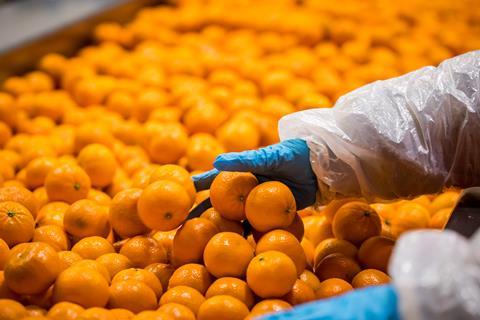Industry body urges federal government to rethink new levy following lack of consultation
Citrus Australia has called on the federal government to repeal a proposed Biosecurity Protection Levy announced as part of the 2023/24 budget.

The levy will apply to Australian producers of agricultural, forestry and fishery products from 1 July 2024 and has been set at a rate equivalent to 10 per cent of the 2020/21 industry-led agricultural levies. This is estimated to increase receipts by A$153m over three years.
Citrus Australia chief executive Nathan Hancock said more than A$3.5m of levies were collected from the Australian citrus industry over 2020/21, money was used to fund important R&D projects, as well as industry marketing campaigns and training programmes.
In its current form, Hancock said the Biosecurity Protection Levy had the potential to undermine the statutory levy system.
“To call the Biosecurity Protection Levy a levy as it is proposed is a misnomer – it is simply a grower-funded tax on food security. The statutory levy system has been effective in investing grower money – and, where applicable, taxpayers’ money – in research and development, marketing and biosecurity for decades,” he explained.
“Through peak industry bodies, industry is involved from the inception of each levy; it has a say in the amount the industry is levied and how the funds are invested. The proposed Biosecurity Protection Levy has none of these hallmarks.”
Citrus Australia was not involved in consultation around the introduction of the Biosecurity Protection Levy.
Hancock said he, along with the leaders of other plant industry associations, were left stunned when the new levy was announced.
“It’s perplexing that a material figure of a 10 per cent equivalent tax could be arrived upon prior to consultation with industry,” Hancock said.
“What the citrus industry, or any other levied industry, pays in these statutory levies is in no way aligned with the investment of our biosecurity activity, nor our exposure to biosecurity incursions.
“It is therefore misguided to use statutory levy contributions as the base for calculating a dedicated biosecurity levy for agriculture.”
Hancock also called into question the levy’s ability to change the trajectory on biosecurity in Australia.
Funds collected under the Biosecurity Protection Levy will filter into the Department of Agriculture, Fisheries and Forestry’s consolidated revenue stream. Citrus Australia is concerned this money will be used to fill funding gaps in other areas of the department, rather than putting boots on the ground.
“We ask that the revenue brought in by any sustainable funding measures the Government implements is hypothecated to ensure the funding is spent on biosecurity and not on plugging gaps in the department’s budget,” Hancock said.
The citrus industry is worth A$900m to the Australian economy annually, with much of this money spent in rural and regional communities.
Hancock said a biosecurity breach remains the industry’s greatest threat.
“It could wipe out citrus production in parts or all of Australia,” Hancock explained. “Biosecurity prevention and preparedness is therefore a matter of utmost importance to Citrus Australia and our members.
“While we welcome the Albanese Government’s commitment to increasing biosecurity funding, doing so through an erroneous tax on hard-working growers is not the answer.
“I have written to the Hon. Murray Watt, Minister for Agriculture, Fisheries and Forestry, asking that his government abolishes this levy before it comes into force on 1 July 2024.”






No comments yet